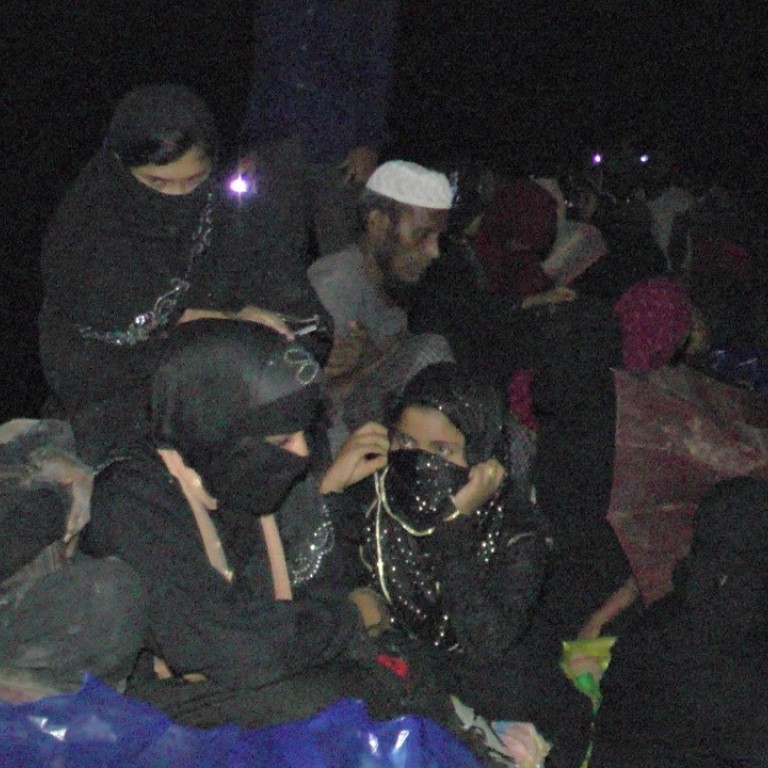
Update | Myanmar misery: Bangladesh border guards force back terrified Rohingya villagers who fled bloodshed that left 100 dead
Dozens have died since Friday as scores of men purportedly from the Arakan Rohingya Salvation Army (ARSA) ambushed Myanmar police posts with knives, guns and homemade explosives
Bangladesh has detained and forcibly returned 90 Rohingya migrants to Myanmar, police said Sunday, just hours after Myanmarese troops on the other side of the border had opened fire on people fleeing the country.
Police intercepted a group of 70 Rohingya late Saturday after they crossed the “zero line” border zone, where Myanmar soldiers earlier fired mortars and machine guns at villagers making the dangerous dash from the northern state of Rakhine into Bangladesh.
The villagers were caught roughly four kilometres inside Bangladeshi territory en route to a refugee camp in Kutupalong, where thousands of Rohingya already live in squalid conditions, said local police chief Abul Khaer.
“All 70 were detained and later pushed back to Myanmar by the border guards,” Khaer said.
Police said some of those detained had entered Bangladesh via the Ghumdhum border area - where the Myanmar forces unleashed the barrage of fire just hours earlier.
“They were pleading with us not to send them back to Myanmar,” said one policeman on condition of anonymity.
Thousands of Rohingya Muslims are desperately fleeing fresh assaults by Burma's military today. pic.twitter.com/NE9HAVqzni— CJ Werleman (@cjwerleman) August 26, 2017
Another 20 Rohingya were caught Sunday and sent back after crossing the Naf river, a natural border between Myanmar and Bangladesh, according to Ariful Islam, a commander with Border Guard Bangladesh (BGB).
Another border officer, Manzurul Hassan Khan, said that fresh gunfire could be heard in villages across the border in Rakhine, a hotbed of religious hatred focused on the stateless Rohingya Muslim minority.
More than 100 people have died since Friday as scores of men purportedly from the Arakan Rohingya Salvation Army (ARSA) ambushed Myanmar police posts with knives, guns and homemade explosives, killing at least a dozen security force members.
Thousands of Rohingya have fled towards Bangladesh, but authorities there have refused to let most of them in, with an untold number of people - mainly women and children - stranded along the border zone.
The impoverished country already hosts some 400,000 Rohingya refugees.
Officials in Cox’s Bazar, the district bordering Myanmar that is home to several large refugee camps, have been instructed not to allow any “illegal entry” by Rohingya, Abdur Rahman, a senior government official, said.
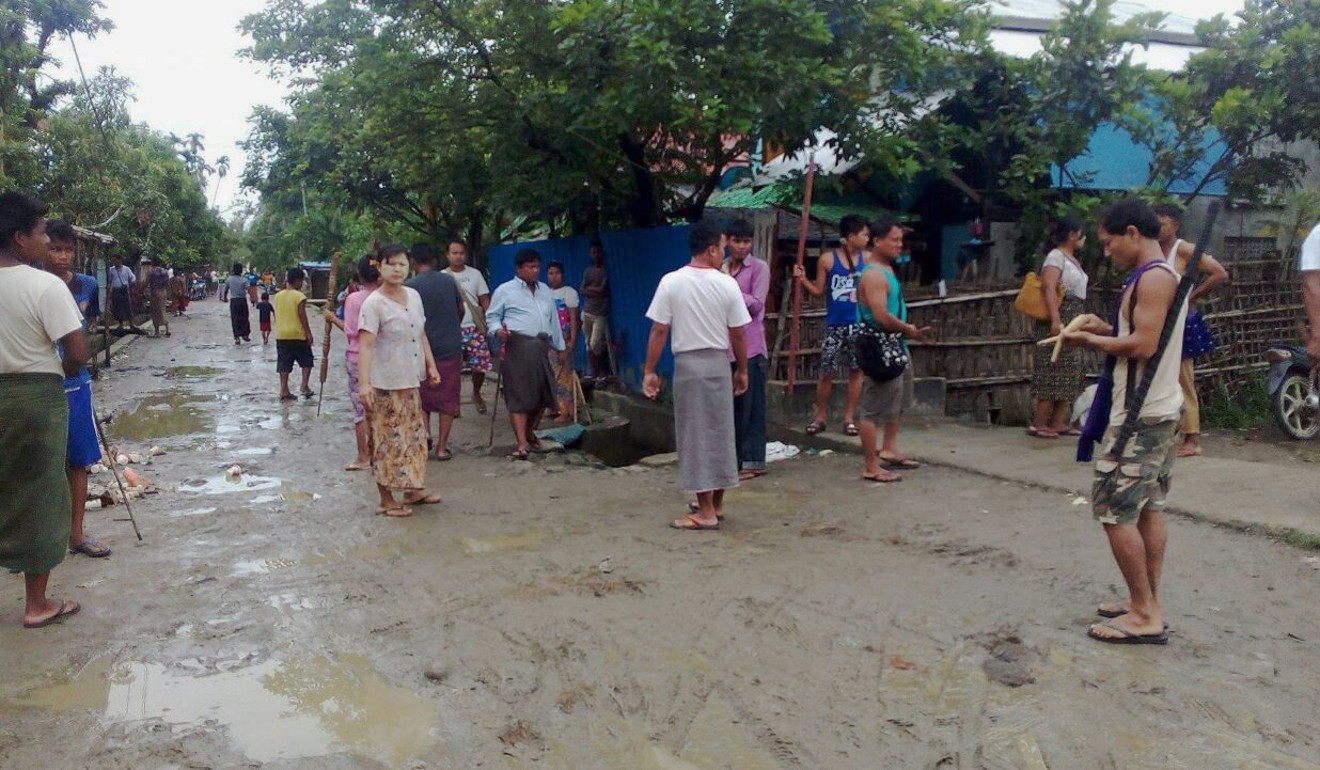
But Rohingya community leaders, local media and correspondents said despite heavy border patrols, at least 3,000 Rohingya refugees have managed to enter the country and found refuge in camps and villages since Friday.
At least 100 mainly women and children arrived Sunday at a makeshift camp in Balukhali, according to a correspondent at the scene, many bringing tales of horror from over the border.
“They fired so close that I cannot hear anything now,” 70-year-old Mohammad Zafar said of armed Buddhists who shot dead his two sons in a field.
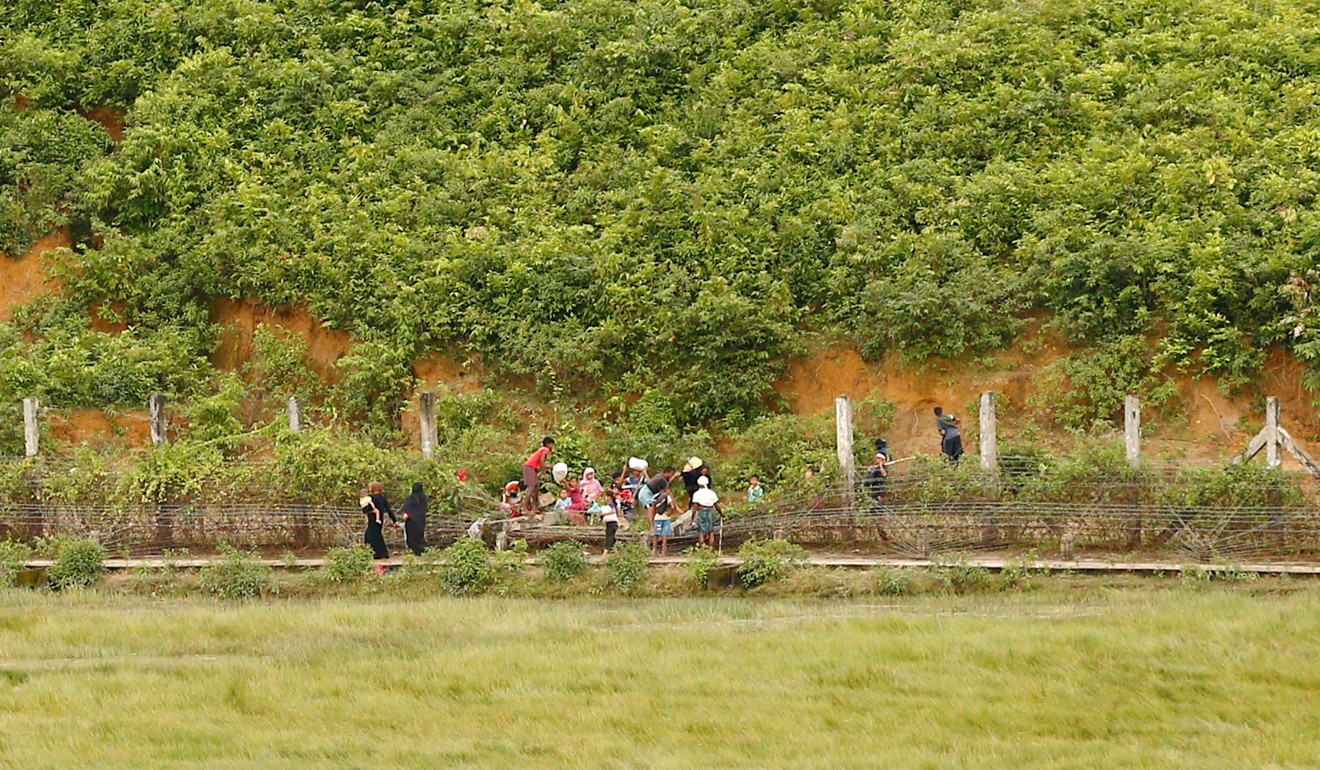
“They came with rods and sticks to drive us to the border yelling, ‘Bengali bastards’”, Zafar said.
Rahima Khatun said she spent the night hiding in the hills after Buddhists in her village torched Rohingya homes and set upon men with machetes and clubs.
“We grew up with them. I can’t figure out how they could be so merciless,” she said.
Others reported being sent across the border by their husbands and brothers, who stayed back to fight the army and Buddhist militias.
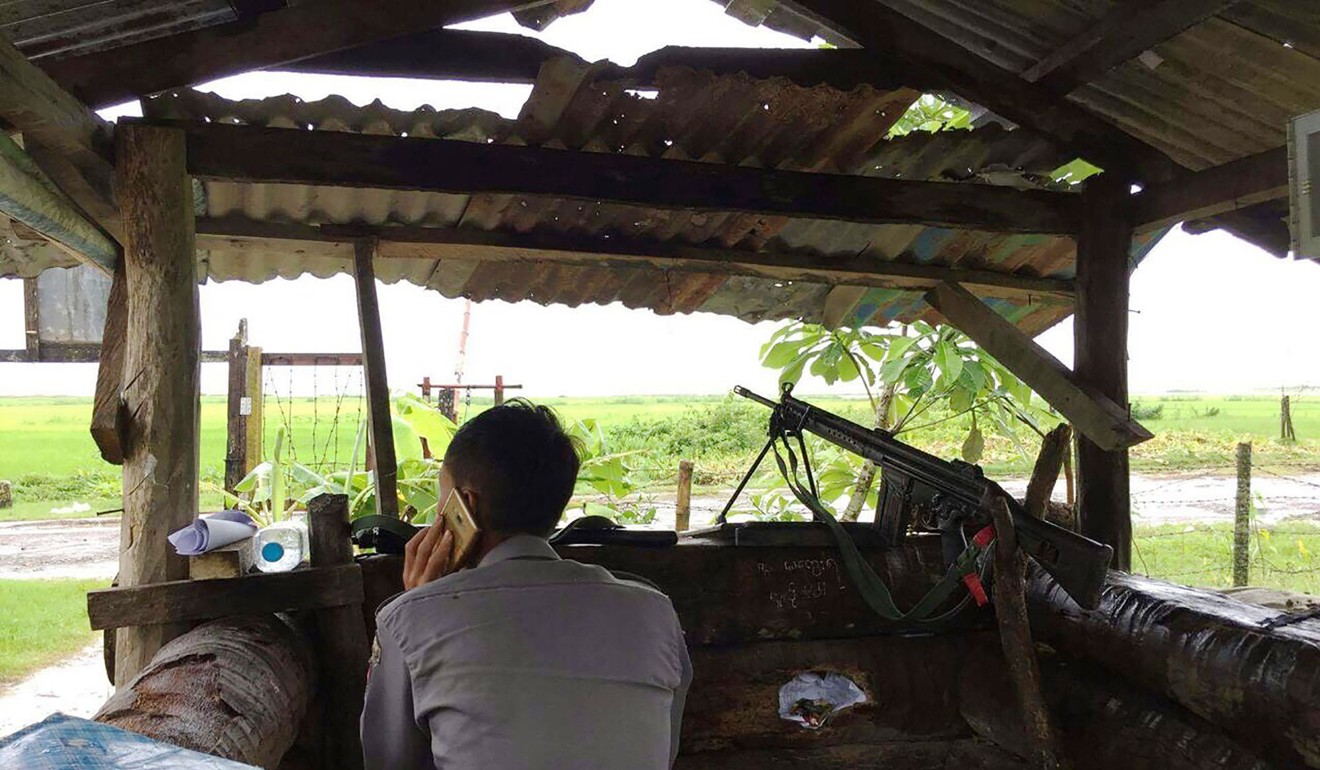
Despite years of persecution, the Rohingya largely eschewed violence.
But in October ARSA attacked a string of Myanmar border posts, sparking a military crackdown that left scores dead and forced 87,000 people to flee to Bangladesh.
Northern Rakhine has been stalked by violence since then, with civilians trapped between security forces and the militants - who are accused of conducting a shadowy assassination campaign against perceived collaborators with the state.
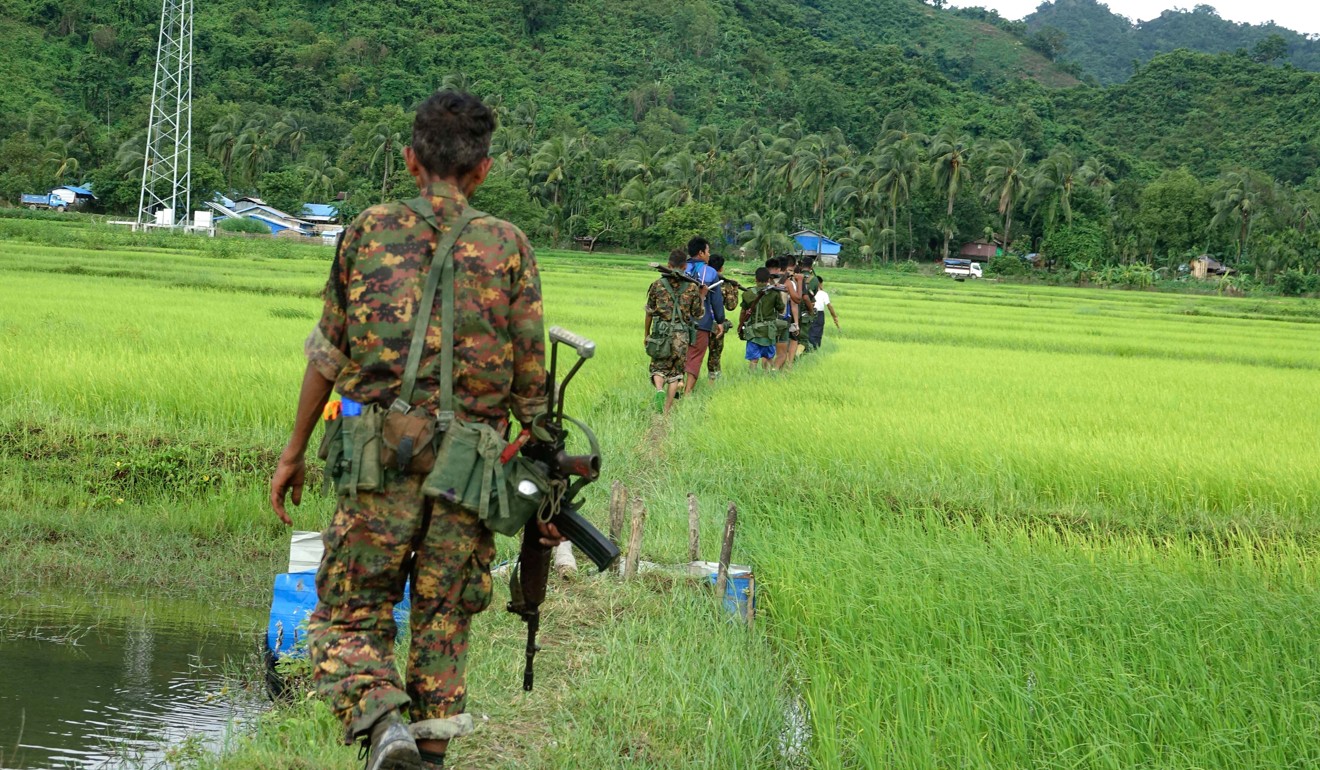
Win Myat Aye, Myanmar’s minister for social welfare, relief and resettlement, said that 4,000 “ethnic villagers” who had fled their villages had been evacuated, referring to non-Muslim residents of the area.
“We are providing food to the people cooperating with the state government and local authorities,” said Win Myat Aye. He was unable to describe the government’s plans to help Rohingya civilians.
In Rakhine itself six members of a Hindu family have become the latest victims of the violence. Their bullet-riddled bodies - including three children and a woman - were discovered on Sunday and brought to a hospital in Maungdaw, the main town in northern Rakhine.
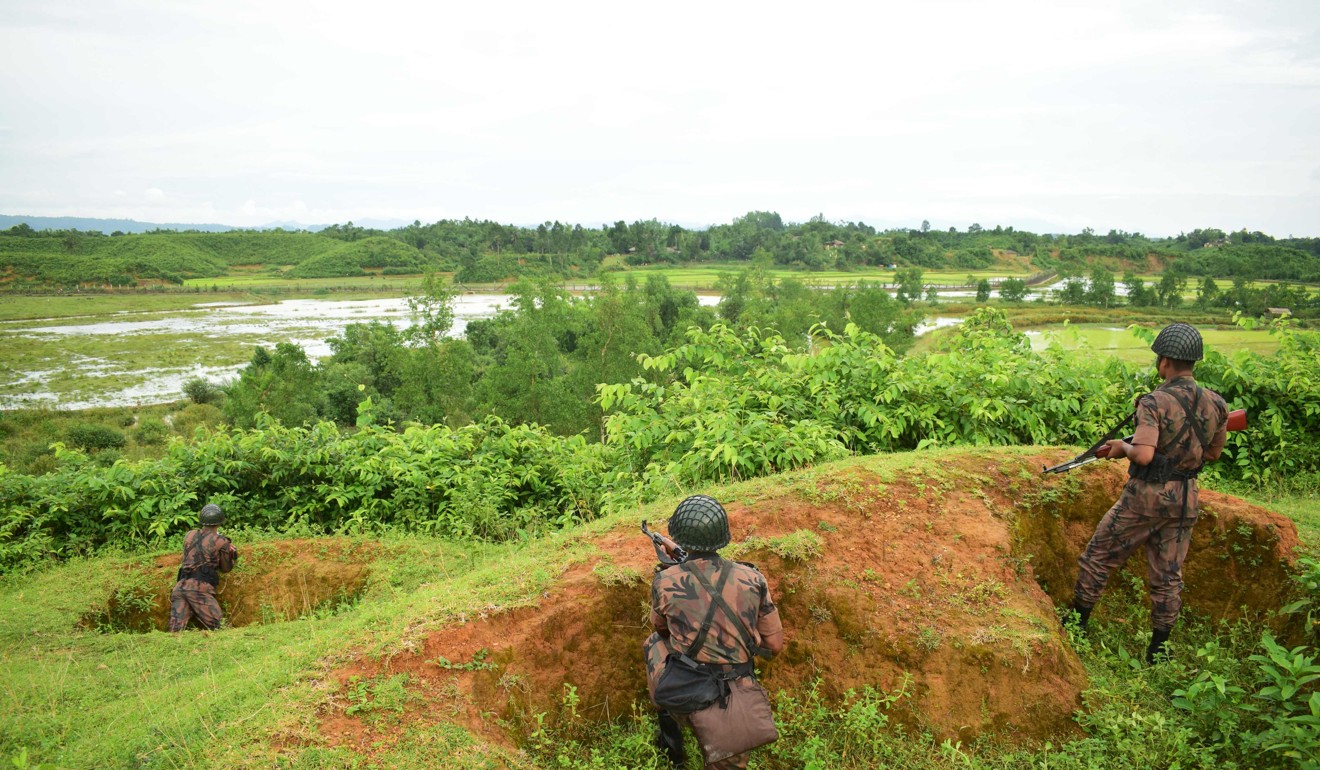
The victims had allegedly been shot dead by Rohingya militants on Saturday evening as they tried to flee to Maungdaw, a relative who lived in the town said.
“We were still in contact with them yesterday by phone before they were killed. Now their dead bodies are in this hospital,” the distraught man said.
The office of Myanmar’s civilian leader Aung San Suu Kyi posted pictures of some of the victims on its Facebook account, saying two women and four children survived the ambush and alerted authorities.
Myanmar’s Rohingya are the world’s largest stateless minority and endure severe restrictions on their movements.
Reviled and spurned as illegal immigrants in Buddhist-majority Myanmar, they live in fear of police and troops.
“They arrest and beat whoever they see along the way,” a man, who gave his first name as Anawar, said by phone.
“Not everyone is terrorist,” he added.
But one Myanmar army source said the military was also struggling to differentiate.
“All the villagers become insurgents, what they’re doing is like a revolution,” said the source in Rakhine.
“They don’t care if they die or not. We can’t tell who of them are insurgents.”
Additional reporting by Reuters

.png?itok=arIb17P0)